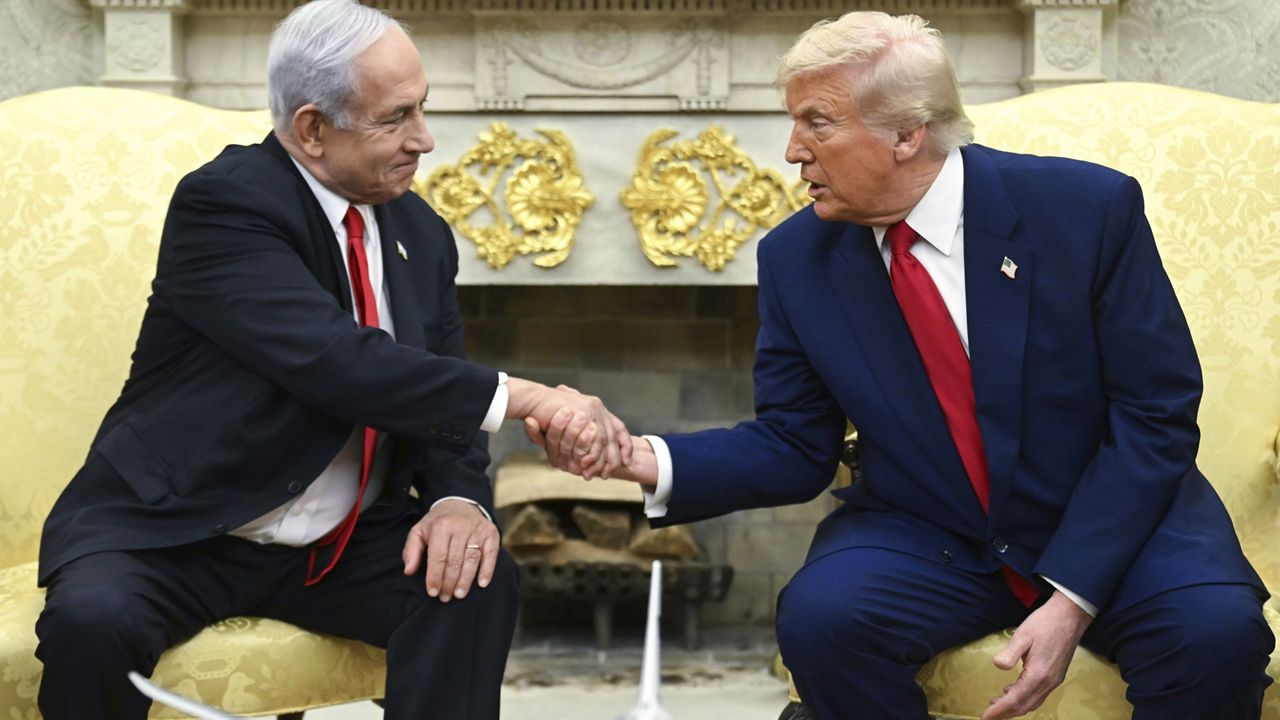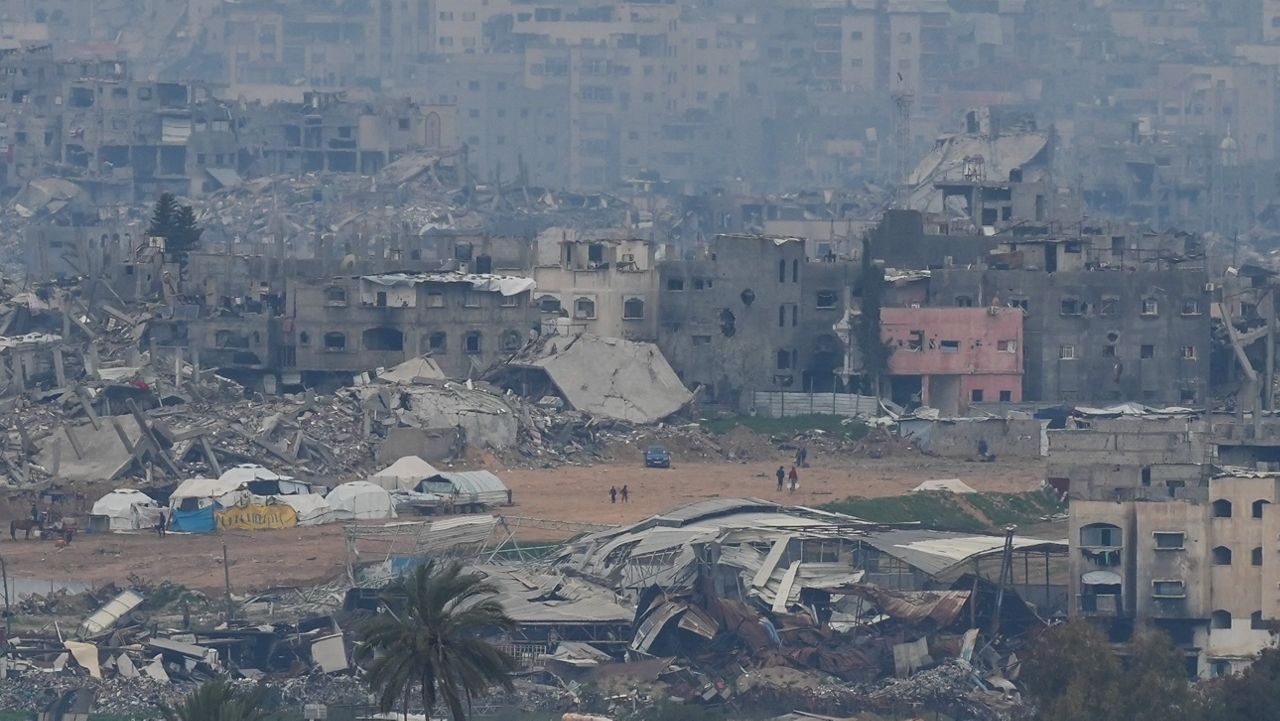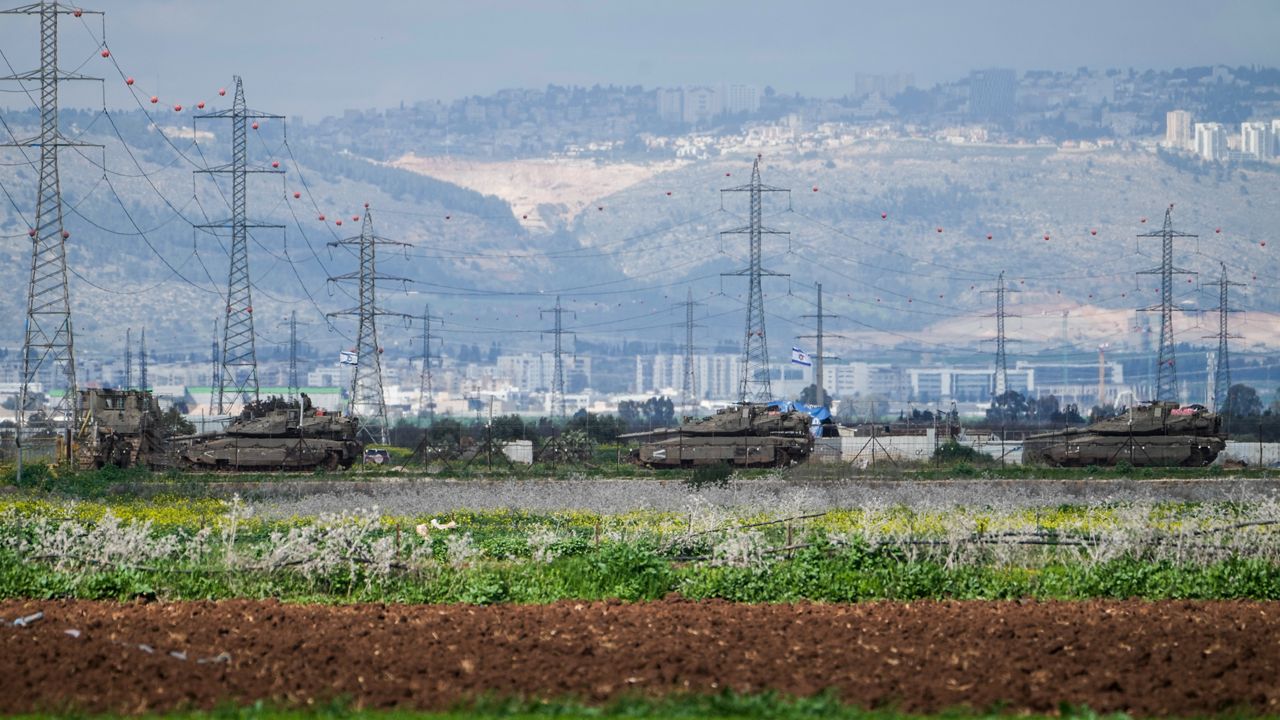Israeli leaders approved a military operation into the Gaza Strip city of Rafah, and Israeli forces began striking targets in the area, officials announced Monday.
"The IDF is currently conducting targeted strikes against Hamas terror targets in eastern Rafah in southern Gaza," the Israeli Defense Forces wrote on X, the platform formerly known as Twitter, on Monday afternoon.
The nature of the strikes was not immediately known, but the move may aim to keep the pressure of the Rafah threat on as cease-fire talks continue. The move came hours after Hamas announced it had accepted an Egyptian-Qatari cease-fire proposal.
Israel's closest allies, including the United States, have warned against an invasion of Rafah. President Joe Biden spoke to Netanyahu on Monday and reiterated U.S. concerns about an invasion of Rafah, telling him a cease-fire was the best way to protect the lives of Israeli hostages, according to a National Security Council spokesperson.
Prime Minister Benjamin Netanyahu’s office said that the proposal was “far from Israel’s essential demands,” but that it would nonetheless send negotiators to continue talks on a cease-fire agreement.
Details of the proposal have not been released. Hamas had been seeking clearer guarantees for its key demand of an end to the war and complete Israeli withdrawal in return for the release of all its hostages, according to Egyptian officials. It was not immediately known if any changes were made.
Netanyahu and other Israeli leaders have repeatedly rejected that trade-off, vowing to keep up their campaign until Hamas is destroyed after its Oct. 7 attack on Israel that triggered the war.
Israel says Rafah is the last significant Hamas stronghold in Gaza, and Netanyahu said Monday that the offensive against the town was vital to ensuring the militants can’t rebuild their military capabilities.
But he faces strong American opposition. After the Israeli evacuation order was issued, Miller said the U.S. has not seen a credible and implementable plan to protect Palestinian civilians. “We cannot support an operation in Rafah as it is currently envisioned,” he said.
The looming operation has raised global alarm. Aid agencies have warned that an offensive will bring a surge of more civilian deaths in an Israeli campaign that has already killed 34,000 people and devastated the territory. It could also wreck the humanitarian aid operation based out of Rafah that is keeping Palestinians across the Gaza Strip alive, they say.
U.N. High Commissioner for Human Rights Volker Türk on Monday called the evacuation order “inhumane.”
“Gazans continue to be hit with bombs, disease, and even famine. And today, they have been told that they must relocate yet again," he said. "It will only expose them to more danger and misery.
Israeli military leaflets were dropped ordering evacuation from eastern neighborhoods of Rafah, warning that an attack was imminent and anyone who stays “puts themselves and their family members in danger.” Text messages and radio broadcasts repeated the message.
The military told people to move to an Israel-declared humanitarian zone called Muwasi, a makeshift camp on the coast. It said Israel has expanded the size of the zone and that it included tents, food, water and field hospitals.
It wasn't immediately clear, however, if that was already in place.
Around 450,000 displaced Palestinians already are sheltering in Muwasi. The U.N. agency for Palestinian refugees, known as UNRWA, said it has been providing them with aid. But conditions are squalid, with few bathrooms or sanitation facilities in the largely rural area, forcing families to dig private latrines.
Israel’s bombardment and ground offensives in Gaza have killed more than 34,700 Palestinians, around two-thirds of them children and women, according to Gaza health officials. The tally doesn't distinguish between civilians and combatants. More than 80% of the population of 2.3 million have been driven from their homes, and hundreds of thousands in the north are on the brink of famine, according to the U.N.
The war was sparked by the unprecedented Oct. 7 raid into southern Israel in which Hamas and other militants killed around 1,200 people, mostly civilians, and abducted around 250 hostages. After exchanges during a November cease-fire, Hamas is believed to still hold about 100 Israelis as well the bodies of around 30 others.









